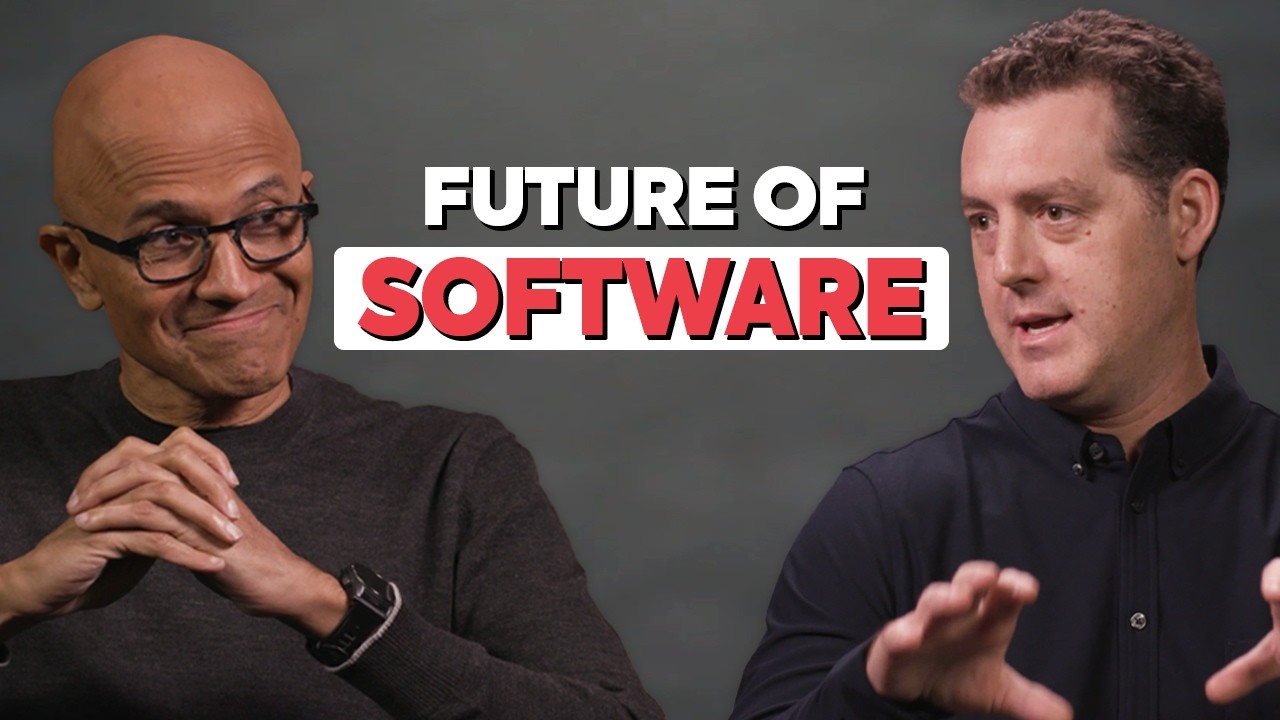Microsoft CEO Satya Nadella discusses how AI is transforming the technology landscape by requiring reimagined infrastructure, intelligent data management, and the evolution of applications into autonomous agents that orchestrate complex processes. He emphasizes the importance of sustainable AI development, secure ownership of AI-generated IP, and the future of generative, adaptive computing systems that blend deterministic and non-deterministic models for societal benefit.
In the interview with Microsoft CEO Satya Nadella, he discusses the transformative impact of AI on the technology landscape, emphasizing that every layer of the tech stack needs to be reimagined to accommodate new AI workloads. Nadella highlights that AI agents require significantly more energy than previous workloads, but the infrastructure built over the past 15 years—such as Azure’s extensive global regions—remains highly relevant. He explains that supporting AI involves vast storage, compute, and accelerators, and that data management is evolving to incorporate reasoning engines and more intelligent querying, which will fundamentally change how applications and data interact.
Nadella envisions a future where traditional software applications will collapse into intelligent agents, orchestrated across multiple backends, including enterprise systems like Dynamics 365. These agents will be capable of managing complex business processes, orchestrating workflows, and integrating various data sources seamlessly. He suggests that SAS companies will need to adapt by supporting new platform capabilities like MCP (Microsoft Cloud Platform) to participate in this agent-driven web. The focus will shift from isolated systems of record or engagement to comprehensive orchestration layers that fulfill entire business processes.
The conversation also explores the ownership and security of AI agents, with Nadella affirming that companies will retain ownership of the intellectual property generated by their agents, similar to traditional IP rights. He emphasizes the importance of managing agents securely, with identity, access, and data protections akin to those used for human users. Nadella foresees individuals building personal agents for their lives, which could eventually be integrated into work environments, provided privacy and data leakage concerns are addressed through proper segregation and management.
A significant part of the discussion revolves around the environmental impact of AI and the energy consumption associated with advanced AI systems. Nadella acknowledges the concerns of younger generations and stresses that the industry must focus on sustainable AI development. He advocates for optimizing energy efficiency—measured as tokens per dollar per watt—and leveraging AI to generate societal benefits, such as improved healthcare outcomes and scientific discoveries. Nadella underscores that technology’s role is to create abundance and prosperity in a sustainable manner, with Microsoft actively investing in renewable energy and efficient infrastructure.
Finally, Nadella reflects on the evolving nature of computing architectures, where the line between deterministic and non-deterministic systems is blurring. He discusses the potential for operating systems and software to become more generative and stochastic, with AI models predicting and creating content in real-time, such as recreating game frames or simulating environments. He emphasizes the importance of understanding and bounding these complex systems through physics-based models and controlled environments, ensuring monitorability and safety. Nadella concludes that we are still in the early stages of this transition, with many exciting developments ahead in the integration of AI into all aspects of technology.
